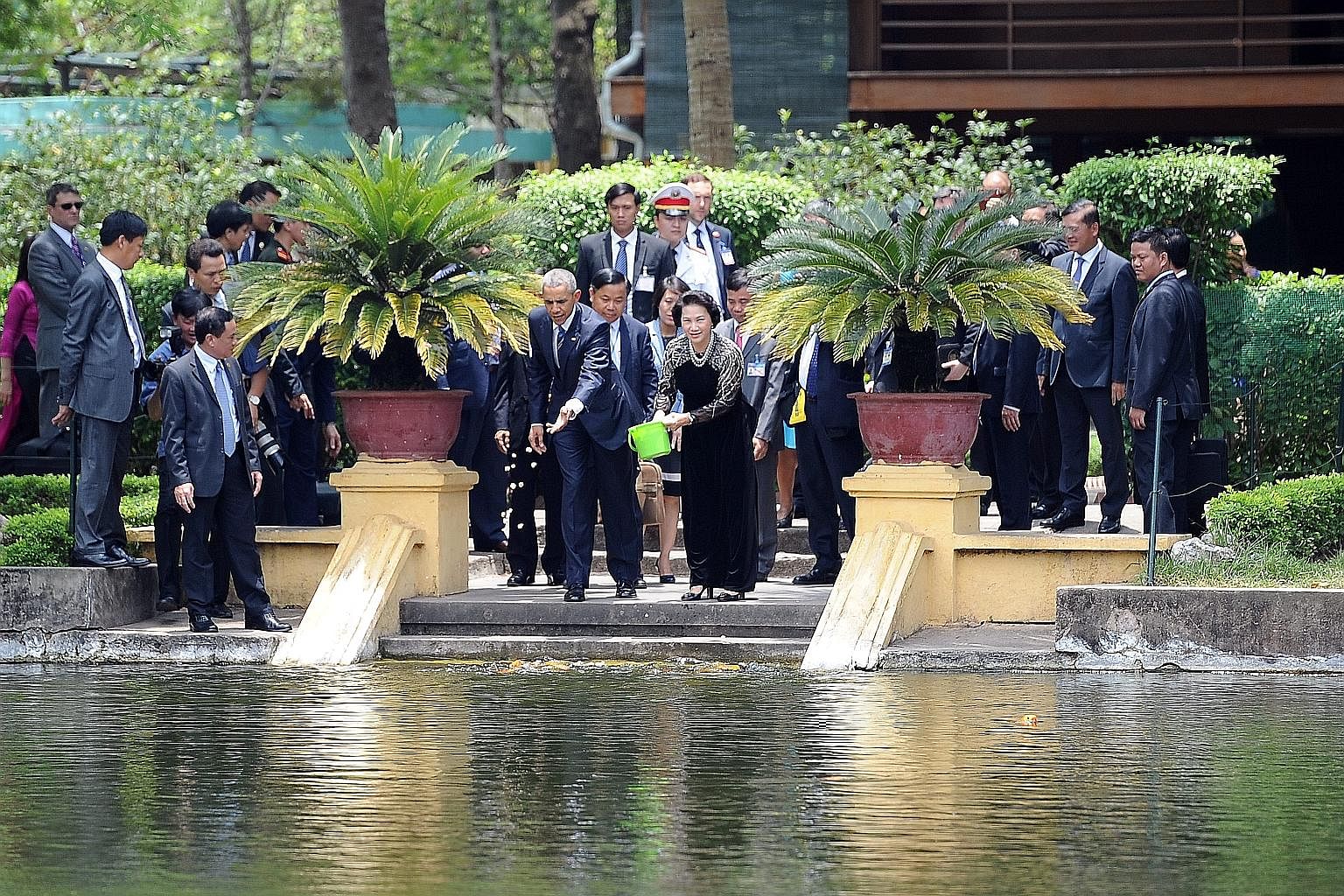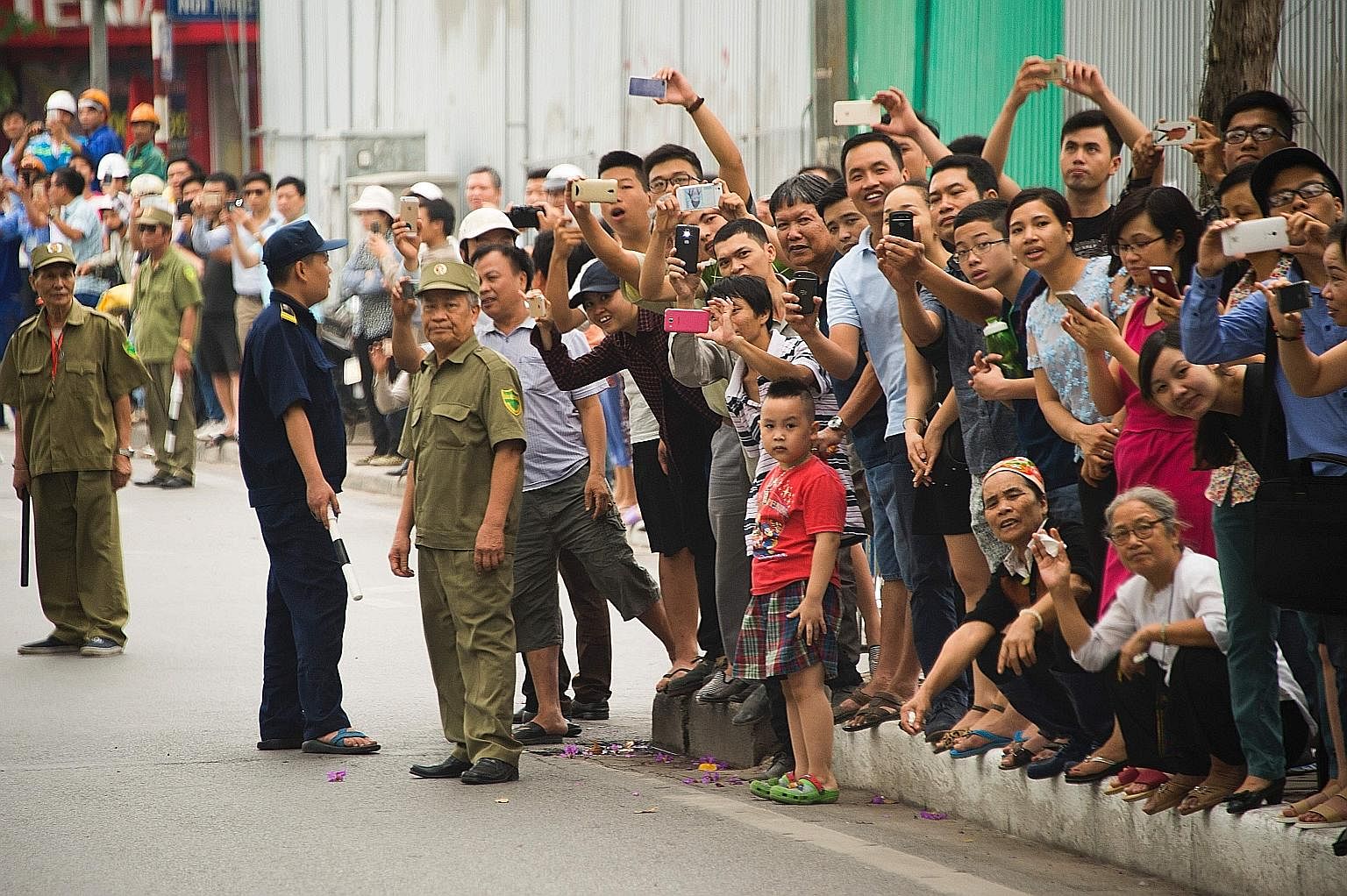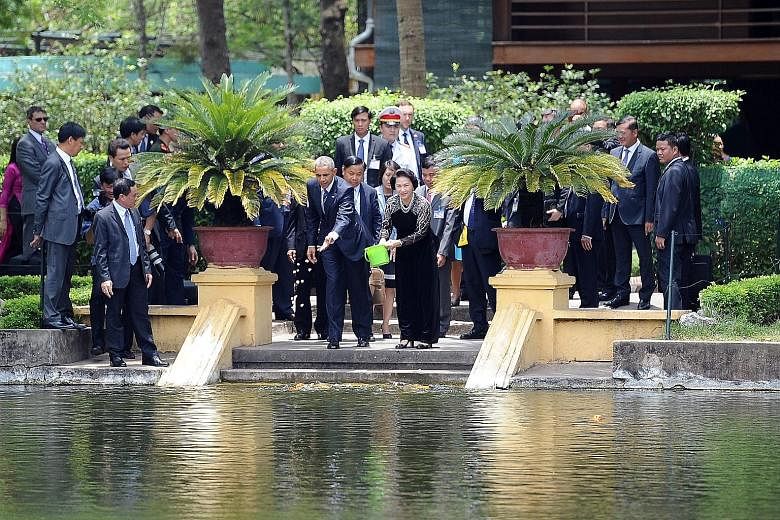The lifting of a decades-old ban on weapon sales to Vietnam was generally welcomed in Washington as an important move to normalise ties with a key ally, even if the demands of human rights groups were unheeded.
Analysts told The Straits Times that the value in ending the embargo would primarily be in the message it sends about the relationship between the two former enemies, rather than any actual arms sales in the near future.
Mr Richard Fontaine, president of the Centre for a New American Security, pointed out, for instance, that an earlier partial lifting of the embargo did not result in a sudden spike in sales.
"The lifting of the arms embargo is a major step, not so much because of the immediate practical effects but because of the signalling that the US-Vietnam relationship is decidedly moving from enemies through normalisation and now to partnership," he said.
Mr Fontaine added that the embargo move was not likely to meet much political opposition in the US as concerns about China's actions in the South China Sea currently outweigh any lingering distrust or ill-will from the Vietnam War.
"There will be pockets of opposition here and there but, by and large, it will be greeted favourably. The legacy issues associated with the Vietnam War are not gone, but they have certainly retreated in the political consciousness to some degree and what a lot of folks in Congress are looking at is China's rising assertiveness and the possibility of enlisting new partners," he said.

Thus far, the strongest objections to the lifting of the ban are from human rights activists.
Ahead of the anticipated announcement, human rights groups had hoped that the move would be made contingent on Vietnam improving on its human rights record. Some were also worried that the Vietnamese authorities might use US arms for domestic repression.
On the second note, analysts agree that the Obama administration will make it clear to the Vietnamese authorities and US weapon manufacturers that sales should be related to maritime domain awareness and not items like tear gas.
As to the demand for the US to use arms embargo for leverage, Mr Gregory Poling, director of the Asia Maritime Transparency Initiative at the Centre for Strategic and International Studies, said such a move was never going to be a quid pro quo.

"This was inevitable. It was going to happen sooner or later but Beijing pushed up the timeline by several years probably by scaring Hanoi and everybody else," he said, adding that even on the human rights score, the Obama administration has reason to lift the ban.
"Vietnam's human rights situation, while not perfect by any stretch, is as good or better than other countries that don't face these kinds of restrictions," he added.
Mr Joshua Kurlantzick of the Council on Foreign Relations said the strategic importance of Vietnam meant that the security relationship sits rightly at the top of the agenda.
He wrote on the think-tank's website: "Vietnam should be an exception to a policy of prioritising democracy in South-east Asia, although the White House can continue pushing for human rights and political freedoms in Vietnam even while ending the arms embargo. Vietnam's importance to the United States' security in Asia, and to the security of US partners, should trump all other issues."



